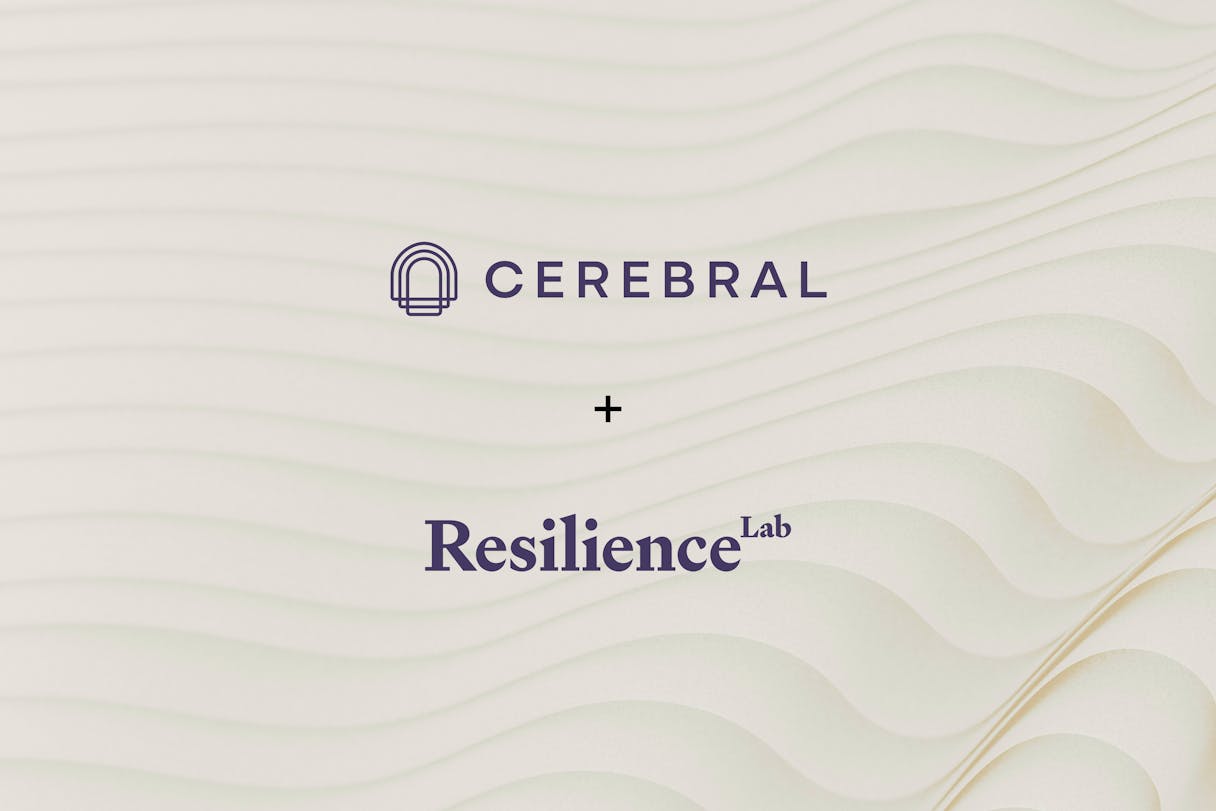If you’re ready to work with a therapist, that’s great news! Finding a licensed therapist is one of the most important steps in your lifelong mental health journey.
With a therapist, you’re finding someone who will get to know you intimately in a way that most people in your life won’t be able to. The right therapist is someone you can be vulnerable with, and is also accessible and affordable for you.
Unfortunately, finding someone isn’t as simple as picking a name off of a list and scheduling a session. You also have to consider how far they are from you, their area of expertise, and whether you can afford their sessions.
There are many other factors you need to consider before you schedule an initial consultation.
Traditional vs. online therapy
The good news is that you have many options when it comes to finding a therapist.
First, you must decide whether you’d like to do online or traditional therapy. Traditional talk therapy is a good place to start. However, online therapy is becoming more popular because of its convenience. Online therapy also provides access to many different types of therapy even if you live in a remote area.
Studies show that online therapy is just as effective at treating depression and anxiety as in-person therapy.
Benefits of Online Therapy
Online mental health services are making it much easier for you to get the help you need.
Convenient and flexible
With an online therapist, you don’t have to spend time driving to and from their office every week. You can speak with them from the comfort of your own home.
It’s also easier to reschedule your appointments as needed. This is especially helpful if you live in a remote area or have a disability and can’t travel long distances.
Better communication between sessions
If you find yourself struggling in between therapy sessions, you might need extra support. Online therapy provides you with accessible ways to keep in contact with your mental health team between sessions.
Cerebral members can chat securely with their therapist anytime.
Easier to budget
To get the most out of your sessions, most experts recommend that you see your therapist at least once a week. That can get pricey, since the average cost of a session can range from $65 to $250 per hour, and varies widely depending on where you live.
Online therapy streamlines these costs and offers affordable and convenient options for you.
With Cerebral’s holistic approach, you can get therapy and medication management for a single membership fee every month. Cerebral also accepts many major commercial health insurance plans, and your membership fee is FSA/HSA eligible.
Easier to get started
With online therapy, you only need an internet connection to get started. If you have social anxiety or find it intimidating to be vulnerable in person, online therapy can help you feel more comfortable opening up.
You also have access to a wider variety of licensed therapists. Cerebral’s licensed therapists are equipped to handle your needs straight away.
Traditional face-to-face therapy
If you feel like you’d benefit more from in-person communication, traditional therapy is a good option. You can benefit from traditional therapy if you:
- have mental health needs that are more appropriately supported in person
- prefer being in someone’s physical presence
- prefer traveling to a safe and separate location outside of your home with little to no distractions
Disadvantages of in-person therapy:
- In-person therapists might not be readily available between sessions if you need them.
- Many in-person therapists have limited appointment slots. That means that you can’t easily reschedule if something urgent comes up.
- You have to account for getting to and from your therapist’s office.
- If you’re sensitive to privacy, you might not want to risk running people into people you know when you’re commuting.
- In-person sessions can be expensive depending on your area and the type of therapy you receive.
Questions to ask yourself when looking for a therapist:
When you’re looking for a therapist, you should first figure out what you’re looking for. You can save a lot of time and money when you do your research and get a clear picture of what you need.
Here are some examples of questions to ask yourself when you do your research:
What issues do I want to address?
Am I having trouble managing my depression and anxiety? Am I having symptoms that need to be diagnosed? Do I need help processing childhood trauma?
What therapy experience am I looking for?
Am I interested in group therapy? Do I prefer individual therapy? Do I need marriage counseling or family therapy?
How far can I travel to see a therapist?
Can I adjust my work schedule to see someone in person? Am I only interested in finding a mental health therapist near me? What counseling services are near me?
What’s my budget?
Do I plan to use health insurance? Am I only interested in therapists who take my health insurance? Can I find a therapist who offers insurance reimbursement or a sliding scale payment structure?
Types of therapy
Now that you have a clearer idea of what you’re looking for, you should also consider what kind of therapy would be a good fit for you.
There are different types of therapy, including:
Cognitive behavioral therapy (CBT)
CBT focuses on recognizing and changing negative thought patterns that impact your emotions and feelings. Studies show that internet-based CBT exercises can reduce anxiety, depression, and insomnia. It’s especially effective when combined with support from a mental health professional.
Cerebral members have full access to online CBT resources. They include lessons, practical exercises, guided audio relaxation sessions, journaling, and more.
Behavioral therapy
Behavioral therapy approaches mental health treatment from an action-oriented perspective. You focus on ways to change behavioral patterns and responses that negatively affect your life.
Humanistic therapy
Humanistic therapy explores how your worldview affects your life and causes you distress. Your therapist works with you to help you better understand your experiences. They also offer support while letting you guide your journey.
Types of therapists
There are different types of therapists with different kinds of credentials, specialties, and years of experience. Once a therapist completes their education, they’re required to counsel under the supervision of a licensed therapist. Usually this is for at least two years and at least 3,000 client contact hours. Licensed therapists also take a clinical exam. Once these are accomplished, a therapist is fully licensed.
Psychiatrist
Credential: MD, DO
Psychiatrists are fully trained medical doctors who typically focus on medication management. They can recommend and prescribe medicine for you and will have a “Dr.” before their name. They don’t typically deliver talk therapy, but they may form a treatment team with a therapist.
Psychologist: Doctorate + License
Credential: PhD, PsyD, EdD
These professionals also have a “Dr.” before their name, but they are unable to prescribe medication. They will often have a highly specific area of expertise and can help you with situations that you need an expert’s perspective on.
Psychologist: Masters + License
Credential: MA, MS, LGPC, LCPC
A psychologist with a masters degree can provide counseling and diagnose and treat mental health conditions. They can specialize in different areas depending on their credentials. You will find their credentials after their name.
They are also unable to prescribe medication, but will often work with a psychiatrist who handles medication management.
Social Worker
Credential: MSW, LGSW, LCSW, LMSW, LCSW-C, LISW, LSW
Similar to psychologists, social workers can also provide counseling and diagnose and treat mental health conditions. Depending on their credentials, they can specialize in different areas. You will find their credentials after their name.
They also cannot prescribe medication, but will often work with a psychiatrist who handles medication management.
Marriage and Family Therapist
Credential: MA, MFT, LMFT, LCMFT
These therapists specialize in marriage and family counseling and can diagnose and treat mental health conditions. They can have different areas of expertise as well. You will find their credentials after their name.
They also cannot prescribe medication, but will often work with a psychiatrist who handles medication management.
Where to find therapists
Online Databases
These websites have online databases that can help you find a therapist near you:
- APA Psychologist Locator
- National Register
- Therapy Directory Psychology Today
- Association for Behavioral and Cognitive Therapies
- National Association of Social Workers
Recommendations or Referrals
Your primary care physician or psychiatrist can help refer you to a reputable psychologist, therapist, or psychiatrist—depending on your need. They may also be able to help you find one who will accept your insurance.
You can also go directly to your insurance company’s website to see if they have a database of therapists who accept your health insurance. They often will have a database, and you can schedule an initial consultation easily.
If you have a friend or family member who has experience with therapy, you could ask them if they have any recommendations for a good therapist. Your friend or family member’s therapist could also have a list of recommendations for other therapists that you could take a look at.
Cerebral Therapists
Finding a therapist you’d like to work with who is accessible to you is one of the most important steps you can take to being mentally healthy. It might seem overwhelming at first, but taking the time to do your research will help you find the right person for you.
Whether you’re ready to schedule your initial consultations or you’re still looking, Cerebral is there for you! Here are some other resources to help you on your mental health journey:
- What to know about getting antidepressants online with telehealth
- Feeling anxious or down? Signs of depression and anxiety
- Bipolar Disorder: Symptoms, Risks & Finding Online Treatment
- Can I afford mental health medication and therapy?
- Is it time to get help? Here’s how to decide
- Getting past the stigma of mental health treatment

Our Care: The Resilience Methodology

A New Era of Mental Healthcare: How Cerebral Is Expanding High-Quality, Personalized Care

Relationship Anxiety: Understand the Signs and Ways to Cope

Call 911 if you’re having a
mental health emergency
Text Home to 741-741 if you're in emotional
distress and need immediate support
Call or text 988 Suicide &
Crisis Lifeline. Chat service
is available at 988lifeline.org.